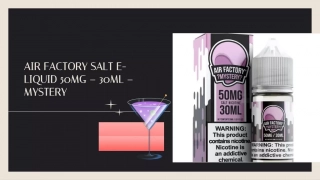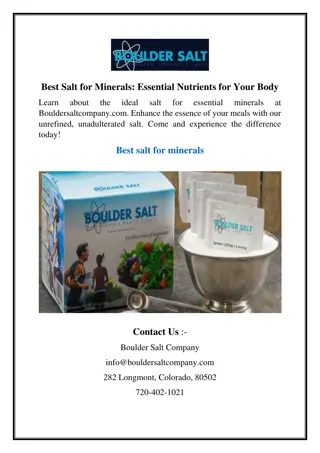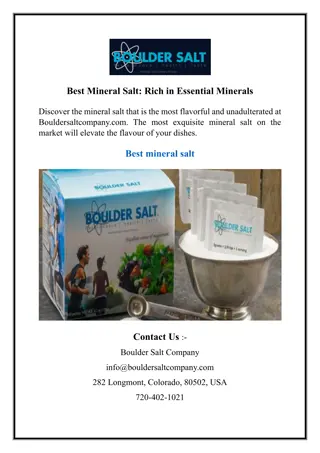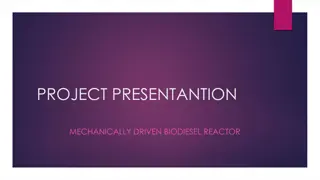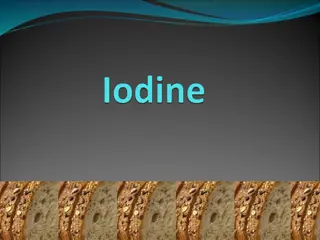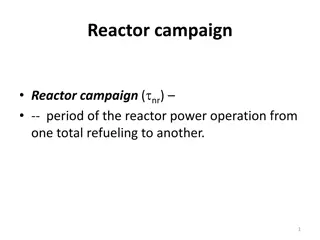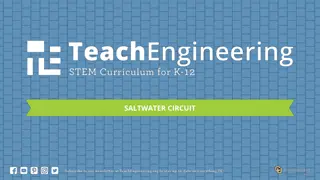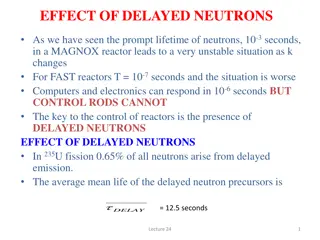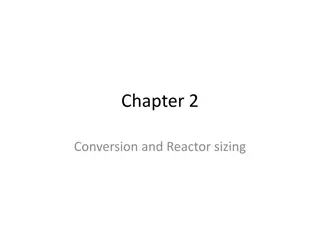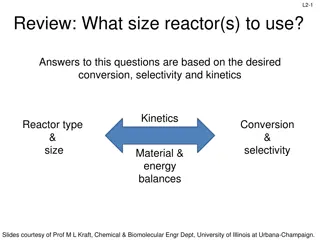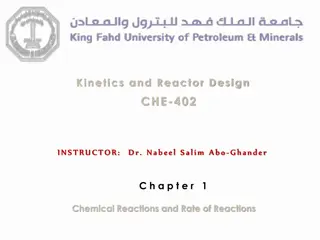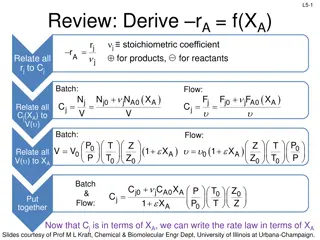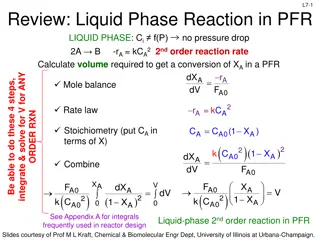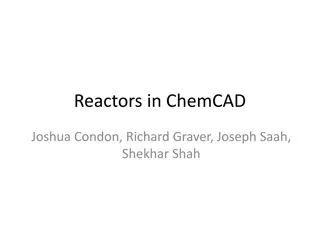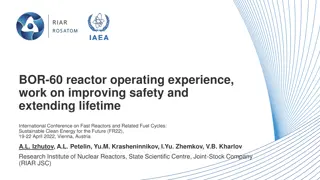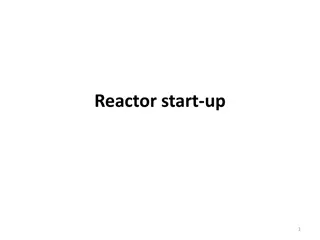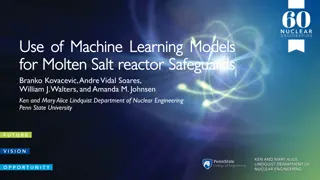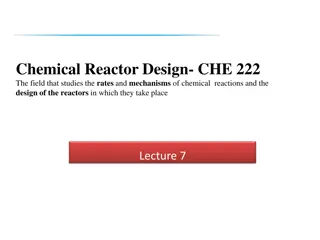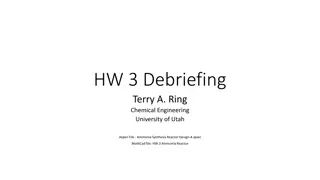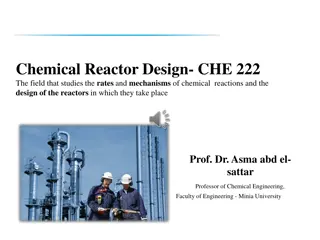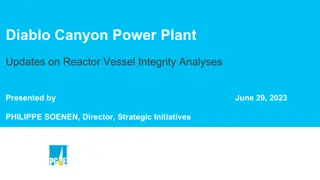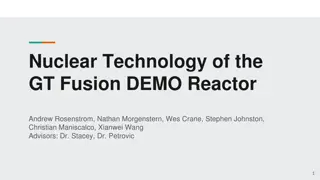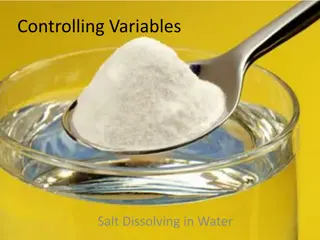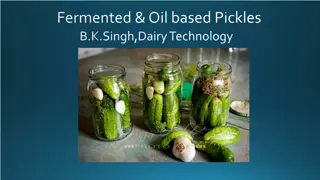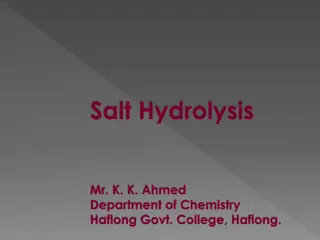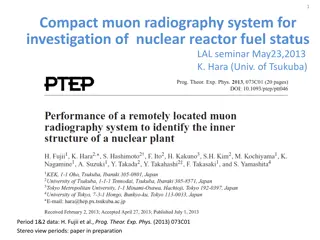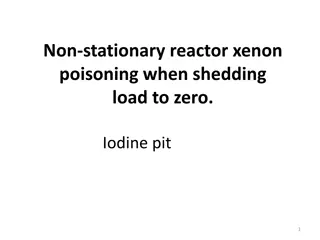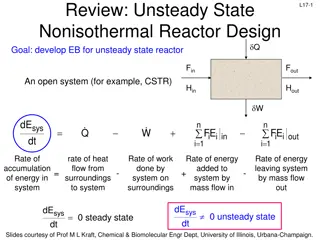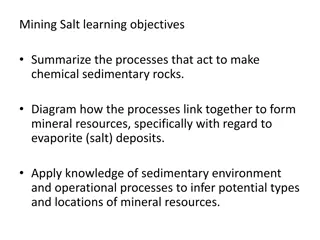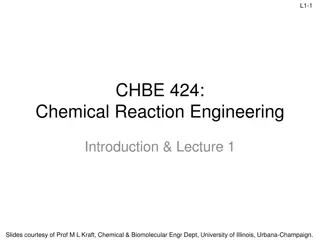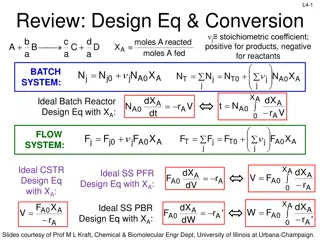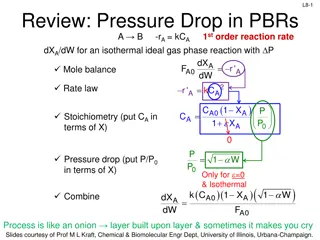Mystery of Air Factory Salt E-Liquid 50mg – 30ml
Air Factory Salt Mystery E-Liquid 50mg of nicotine salt packed into a 30ml bottle, this vape juice promises a mysterious and satisfying. https:\/\/shorturl.at\/cjAK4
1 views • 7 slides
Inside Salt Lake City Fire Department: Meet Captain Allen and Crew 11C
Salt Lake City Fire Department is a well-equipped department with 14 fire stations and a dedicated team led by Chief Karl Lieb. Fire Station 11, serving areas including the airport and Pacific Heritage Academy, houses Captain Allen and Crew 11C who are part of the department's educational partnershi
0 views • 25 slides
Permanent-Mold Die Casting Processes Overview
Permanent-mold die casting is a process where molten metal is injected into a mold cavity under high pressure, maintained during solidification. This process utilizes hot-chamber and cold-chamber die casting machines for casting various metals like zinc, aluminum, brass, and magnesium. Hot-chamber m
4 views • 7 slides
Best Salt for Minerals Essential Nutrients for Your Body
Learn about the ideal salt for essential minerals at Bouldersaltcompany.com. Enhance the essence of your meals with our unrefined, unadulterated salt. Come and experience the difference today!\n\n\/\/ \/what-is-the-healthiest-salt\/
6 views • 1 slides
Best Mineral Salt Rich in Essential Minerals
Discover the mineral salt that is the most flavorful and unadulterated at Bouldersaltcompany.com. The most exquisite mineral salt on the market will elevate the flavour of your dishes.\n\n\/\/ \/what-is-the-healthiest-salt\/
5 views • 1 slides
Best Salt for Cramps Fast Relief and Prevention
Bouldersaltcompany.com offers the finest salt to alleviate cramping. Our natural and pure salt is the ideal solution for muscle spasms. Shop now!\n\n\/\/ \/performance\/
5 views • 1 slides
Best Salt for Athletes Enhance Performance and Recovery
Improve your athletic performance with the finest salt for athletes, available at Bouldersaltcompany.com. The minerals that are essential for optimal health are present in our pure and natural salt.\n\n\/\/ \/best-salt-for-athletes-2\/
4 views • 1 slides
Mechanically Driven Biodiesel Reactor for Village-Level Production
This project introduces a mechanically-driven biodiesel reactor designed to empower older women caregivers in Kenya by utilizing a pedal-operated system for biodiesel production from non-edible oils. The reactor, driven by a treadle sewing machine, aims to provide a sustainable energy solution while
1 views • 18 slides
Understanding the Importance of Iodine Supplementation for Pregnancy and Breastfeeding
Iodine is an essential mineral crucial for thyroid function and preventing birth defects like cretinism. It is found in varying amounts in soil, iodized salt, seafood, and certain foods. Iodized salt contains 400 micrograms of iodine per teaspoon. Daily iodine requirements differ based on age and li
0 views • 13 slides
Understanding Reactor Campaign in Nuclear Power Operations
Reactor campaign in nuclear power operations is crucial for ensuring safe and efficient reactor power operation. It involves managing reactivity margin, fuel residence time, nominal power, and effective days of operation. Reactor campaigns are influenced by various factors such as fuel elements' res
1 views • 64 slides
Exploring the Impact of Salt Quantity on Saltwater Circuit Current
A saltwater circuit utilizes saltwater as a key element for conducting electricity. This unique circuit involves the dissolution of salt into sodium and chloride ions, which, when exposed to an electric voltage, allows for the flow of electricity. The quantity of salt present in the circuit directly
0 views • 9 slides
Understanding the Role of Delayed Neutrons in Reactor Control
Delayed neutrons play a crucial role in controlling nuclear reactors by providing a means to adjust reactivity. These delayed neutrons, emanating from fission processes in 235U, have a longer mean lifetime compared to prompt neutrons. This characteristic allows for a more manageable reactor operatio
0 views • 15 slides
Reactor Sizing and Conversion in Chemical Engineering
This chapter explores the sizing of Continuous Stirred Tank Reactors (CSTR) and Plug Flow Reactors (PFR) using conversion values and overall conversion. It covers the definition of conversion, batch reactor design equations, design equations for flow reactors, and more. The content delves into the m
0 views • 17 slides
Coastal Ecosystems: Salt Marshes and Mangroves Overview
Explore the factors influencing coastal ecosystems like latitude, tidal cycles, wave energy, and geological characteristics. Dive into examples from the Pacific Northwest and southeastern U.S., focusing on salt marsh ecosystems. Learn about plant communities and zonation in salt marsh environments.
0 views • 22 slides
Reactor Sizing: Conversion, Selectivity, and Kinetics Overview
Understanding reactor design involves considerations such as desired conversion, selectivity, and kinetics. Key concepts include rate laws, molar balances, and reactor types. Through molar balance equations and reactor design processes, one can derive essential equations for ideal batch, CSTR, and P
2 views • 20 slides
Fundamentals of Chemical Kinetics and Reactor Design
Explore the realm of chemical reactions, rate equations, and reactor design in this informative chapter. Understand the factors influencing reaction rates, different types of reactions, rate laws, and experimental determination of reaction rates. Dive into examples illustrating stoichiometry and rat
0 views • 19 slides
Chemical Reactor Design Principles
Explore the fundamentals of chemical reactor design, including stoichiometry, reaction rates, and reactor scale-up. Learn to derive rate laws and design equations in terms of conversion for batch, CSTR, and PFR reactors. Discover the logic behind isothermal reactor design and calculation of required
0 views • 21 slides
Reactor Design Principles for Liquid and Gas-Phase Reactions
This material covers the design principles for liquid and gas-phase reactions in continuous flow reactors such as PFR (Plug Flow Reactor) and PBR (Packed Bed Reactor). It includes calculations for volume required to achieve a specific conversion, catalyst weight needed, and considerations for ideal
0 views • 21 slides
Understanding Reactors in ChemCAD: Models and Examples
ChemCAD offers various reactor models such as stoichiometric and equilibrium reactors for simulating chemical processes. Engineers can choose the appropriate model based on the reaction type and accuracy needed. Explore different reactor types through examples and process flow diagrams to enhance yo
0 views • 21 slides
BOR-60 Reactor Operating Experience and Design Configuration
The BOR-60 reactor, a key component of sustainable clean energy, has a rich history since its construction in the USSR. Its design configuration includes various components such as coolant inlet nozzles, control rod mechanisms, and fuel loading ducts. The core arrangement consists of control rods an
0 views • 12 slides
Understanding Reactor Start-up and Neutron Multiplication in Subcritical Reactors
Reactor start-up is a crucial operation that transitions a reactor from a subcritical state to a critical state by carefully adjusting reactivity levels. In a subcritical reactor, the neutron density should decrease over time but may not reach zero due to certain factors. Neutron multiplication fact
0 views • 66 slides
Machine Learning for Molten Salt Reactor Safeguards
Molten salt reactors face challenges in material accounting due to liquid fuel which precludes traditional safeguards. This project proposes a two-step approach involving the development of measurement signatures created by material diversion, and a machine learning model to distinguish normal react
1 views • 18 slides
Chemical Reactor Design: Rates, Mechanisms, and Reactor Types
The field of chemical reactor design encompasses studying reaction rates, mechanisms, and designing reactors for various processes. Factors such as reaction type, production scale, cost, safety, and more influence the choice of reactor scheme. Understanding reactor systems and applying engineering j
1 views • 15 slides
Ammonia Reactor System Design and Optimization Study for High Efficiency
This material discusses the design and optimization of an ammonia synthesis reactor system for maximizing conversion efficiency while minimizing CAPEX costs. Various factors such as managing heat effects, reaction runaway prevention, and cooling profiles are explored. Recommendations include using a
3 views • 10 slides
Overview of Chemical Reactor Design and Operation
Chemical reactor design involves studying the rates and mechanisms of chemical reactions, as well as the design of reactors for these reactions on a commercial scale. This field combines principles from thermodynamics, chemical kinetics, fluid mechanics, mass transfer, heat transfer, and economics t
0 views • 12 slides
Diablo Canyon Power Plant Reactor Vessel Integrity Analyses Update
Updates on Diablo Canyon Power Plant's reactor vessel integrity analyses were presented by Philippe Soenen, Director of Strategic Initiatives, on June 29, 2023. The analysis includes background information, reactor vessel surveillance coupon withdrawal plans, and the request for Nuclear Regulatory C
0 views • 9 slides
Advancements in Fusion Reactor Technology: A Comprehensive Overview
This presentation delves into the nuclear design aspects, objectives, background, and state-of-the-art components of the GT Fusion DEMO Reactor project. It covers key areas such as tritium breeding ratio, neutron transport, temperature distribution, and material choices for optimal reactor performan
0 views • 31 slides
Investigating Salt Dissolving in Water Experiment
This experiment explores the factors affecting the rate of salt dissolving in water by varying the amount of salt added and observing the time taken for complete dissolution. The independent variable is the amount of salt, the dependent variable is the time taken for dissolving, and controlled varia
2 views • 5 slides
Fermented Vegetables: Health Benefits and Production Process
Fermented vegetables offer a plethora of health benefits, such as aiding digestion, boosting the immune system, and potentially reducing the risk of certain diseases. Sauerkraut, a popular fermented cabbage dish, is a common example, known for its distinct sour flavor and nutritious profile. The fer
0 views • 20 slides
Understanding Salt Hydrolysis in Chemistry
Salt hydrolysis is a chemical process in which a salt reacts with water to produce an acid and a base. This reaction occurs when the cation or anion of the salt interacts with water, resulting in either an acidic or basic solution. The type of hydrolysis depends on the strength of the acid and base
0 views • 6 slides
Discover Salt and Light: Fascinating Facts and Insights
Dive into the intriguing world of salt and light with an exploration of their significance, properties, and impact on our lives. From the amount of salt in the human body to the speed of light, uncover interesting details and historical milestones related to these essential elements. Delve into bibl
0 views • 23 slides
Compact Muon Radiography System for Investigation of Nuclear Reactor Fuel Status
A seminar presentation at LAL on May 23, 2013, discussed a compact muon radiography system designed for investigating the status of nuclear reactor fuel. The system, developed by researchers from the University of Tsukuba, involved the use of trackers with scintillators and muon detectors at various
0 views • 56 slides
Reactor Xenon Poisoning and Iodine Pit Phenomenon
When a non-stationary reactor is shut down or its load is reduced to zero, xenon poisoning occurs due to the disruption of dynamic equilibrium between the increase and decrease of 135Xe. This leads to a temporary increase in 135Xe concentration, followed by a decrease as it decays. The reactivity ma
0 views • 58 slides
Chemical Reactor Design: Unsteady State and Nonisothermal Reactors
Developing energy balances for unsteady state and nonisothermal reactors is essential for designing efficient chemical reactors. The energy balances involve terms such as heat flow, work done, energy accumulation, and mass flow, which impact the reactor's performance. By considering factors like pha
0 views • 29 slides
Formation of Salt Deposits: Processes and Mineral Resources
Understanding the processes involved in the formation of chemical sedimentary rocks, particularly evaporite deposits like salt, is crucial for inferring potential mineral resources. This involves concepts such as evaporation, chemical weathering, crystallization, and lithification, which link togeth
0 views • 4 slides
Enhancing Academic Writing Skills with SALT Tool
The Students Academic Literacy Tool (SALT) was developed to aid students in improving their academic writing at degree level. Through a pilot study with psychology students, it was found that using SALT alongside traditional feedback led to greater improvement in writing style. Further evaluation is
0 views • 11 slides
Evaluating Salt Reduction Programs Through Sales Surveys
This study discusses the use of salt sales surveys as a simplified method to evaluate community-based salt reduction programs. It outlines the methodology, including randomization and data collection from shops in villages. The aim is to determine the effectiveness of these programs in reducing salt
0 views • 20 slides
Introduction to Chemical Reaction Engineering
Chemical Reaction Engineering (CRE) is crucial for understanding how chemical reactors operate in various processing operations. This field involves reactor design by integrating factors such as thermodynamics, kinetics, fluid mechanics, heat transfer, and economics. CRE aims to effectively design a
0 views • 16 slides
Review of Chemical Reactor Design Concepts and Numerical Integration Methods
This presentation covers various topics related to chemical reactor design, including batch systems, flow systems, ideal reactor design equations, CSTRs, PFRs, and PBRs. It also discusses the numerical evaluation of integrals using different methods such as Simpson's rules. Slides courtesy of Prof.
0 views • 25 slides
Reactor Design Fundamentals: Rate Laws and Analysis
This content covers the analysis of pressure drop in packed bed reactors, determining reaction order, and studying rate data for reactor design. It delves into stoichiometry, kinetics, fluid dynamics, and the challenges of collecting and analyzing rate data. Examples of rate laws and reactions are p
0 views • 32 slides
